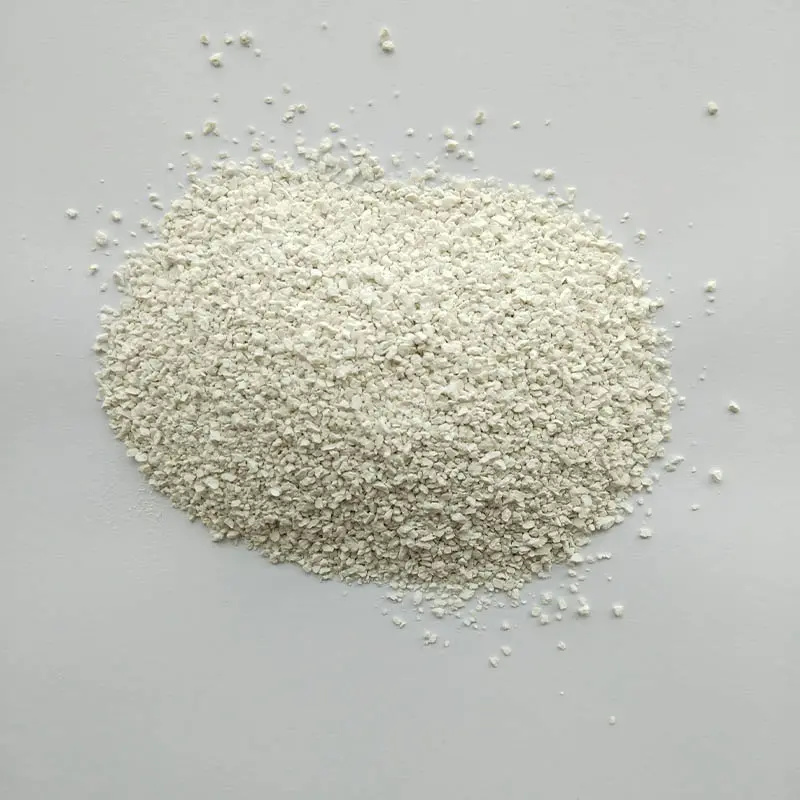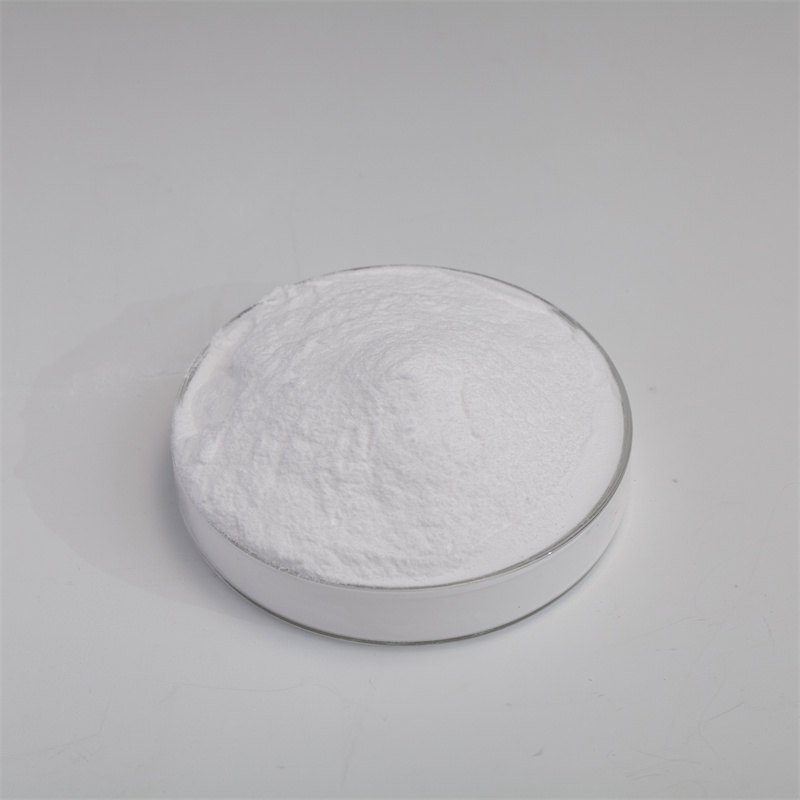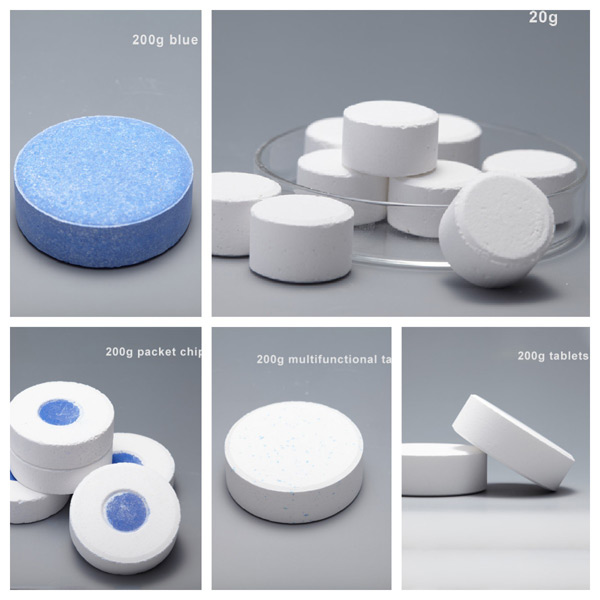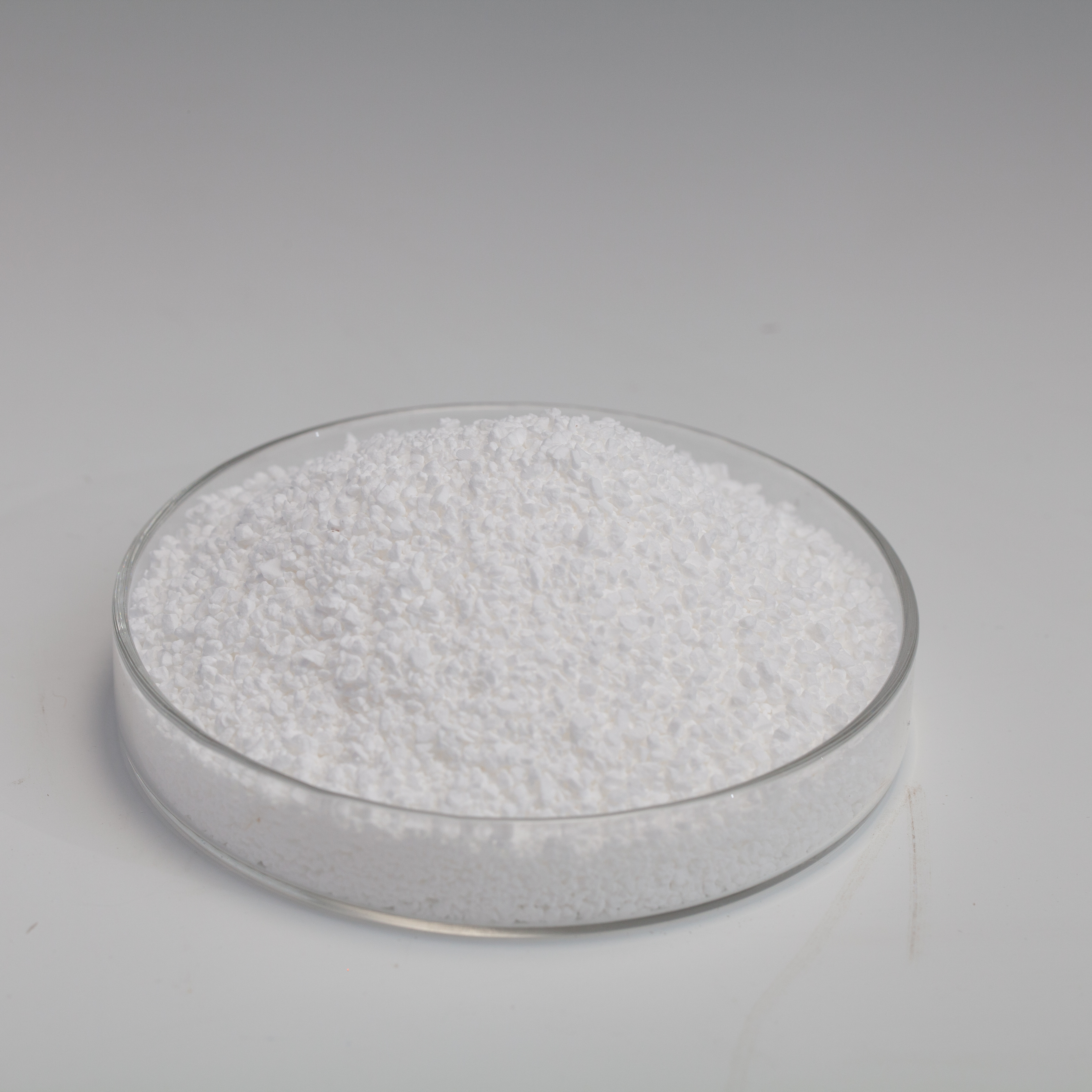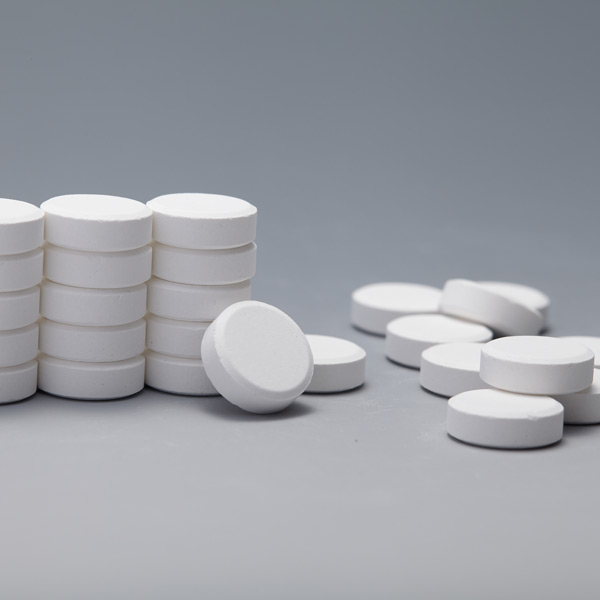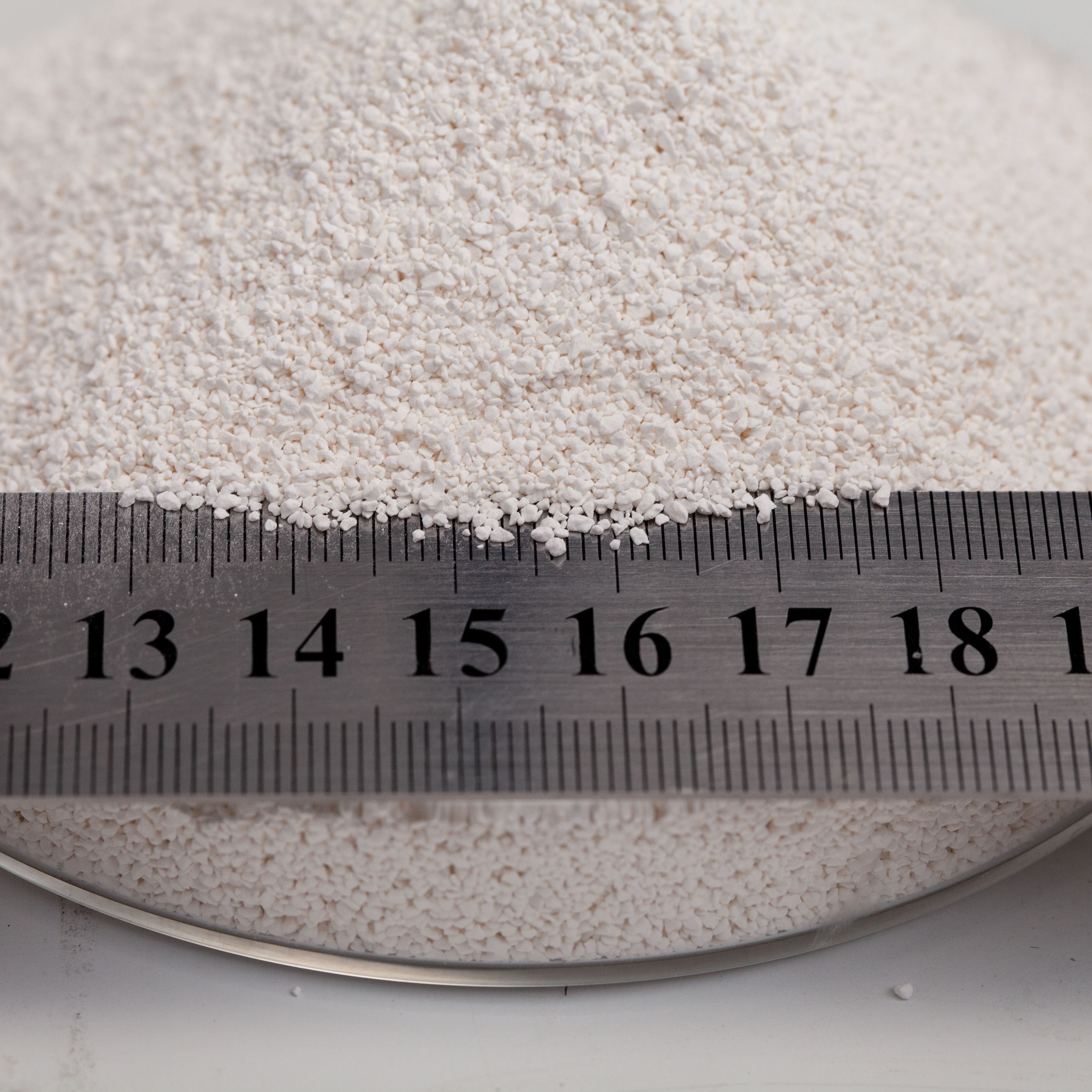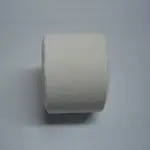Calcium Hypochlorite For Drinking Wate
Introduction
Calcium hypochlorite is a chemical compound often used as a disinfectant and sanitizer, including for water treatment. It contains chlorine, which is effective in killing bacteria, viruses, and other microorganisms.
Technical Specification
| Items | Index |
| Process | Sodium process |
| Appearance | White to light-grey granules or tablets |
|
Available chlorine (%) |
65 MIN |
| 70 MIN | |
| Moisture (%) | 5-10 |
| Sample | Free |
| Package | 45KG or 50KG / Plastic drum |
Precautions for drinking water treatment
It's important to note that using calcium hypochlorite for drinking water treatment requires careful handling and adherence to recommended guidelines, as excessive amounts can be harmful.
1. Dosage: It's crucial to use the appropriate dosage of calcium hypochlorite to ensure effective disinfection without compromising safety. Dosage requirements can vary based on factors such as water quality, temperature, and contact time.
2. Dilution: Calcium hypochlorite is typically added to water in a diluted form. Follow the recommended dilution ratios provided by the manufacturer or relevant guidelines to achieve the desired concentration for disinfection.
3. Testing: Regularly monitor and test the residual chlorine levels in the treated water. This helps ensure that the disinfection process is effective and that the water is safe for consumption.
4. Contact Time: Adequate contact time is essential for the chlorine to effectively disinfect the water. The time required for chlorine to act depends on factors like water temperature and the specific microorganisms present.
5. Safety Measures: Calcium hypochlorite is a strong oxidizing agent and can be hazardous if not handled properly. Wear appropriate personal protective equipment (PPE), such as gloves and goggles, when handling the chemical. Follow safety guidelines and recommendations provided by the manufacturer.
6. Regulations: Be aware of and comply with local regulations and guidelines related to the use of disinfectants in drinking water treatment. Different regions may have specific standards and permissible levels for chlorine in drinking water.
7. Residual Chlorine: Maintain a residual chlorine level within the recommended range to ensure ongoing disinfection as the water travels through distribution systems.
How do I choose the right chemicals for my application?
You can tell us your application scenario, such as pool type, industrial wastewater characteristics, or current treatment process.
Or, please provide the brand or model of the product you are currently using. Our technical team will recommend the most suitable product for you.
You can also send us samples for laboratory analysis, and we will formulate equivalent or improved products according to your needs.
Do you provide OEM or private label services?
Yes, we support customization in labeling, packaging, formulation, etc.
Are your products certified?
Yes. Our products are certified by NSF, REACH, BPR, ISO9001, ISO14001 and ISO45001. We also have national invention patents and work with partner factories for SGS testing and carbon footprint assessment.
Can you help us develop new products?
Yes, our technical team can help develop new formulas or optimize existing products.
How long does it take for you to respond to inquiries?
Reply within 12 hours on normal working days, and contact via WhatsApp/WeChat for urgent items.
Can you provide complete export information?
Can provide a full set of information such as invoice, packing list, bill of lading, certificate of origin, MSDS, COA, etc.
What does after-sales service include?
Provide after-sales technical support, complaint handling, logistics tracking, reissue or compensation for quality problems, etc.
Do you provide product usage guidance?
Yes, including instructions for use, dosing guide, technical training materials, etc.


